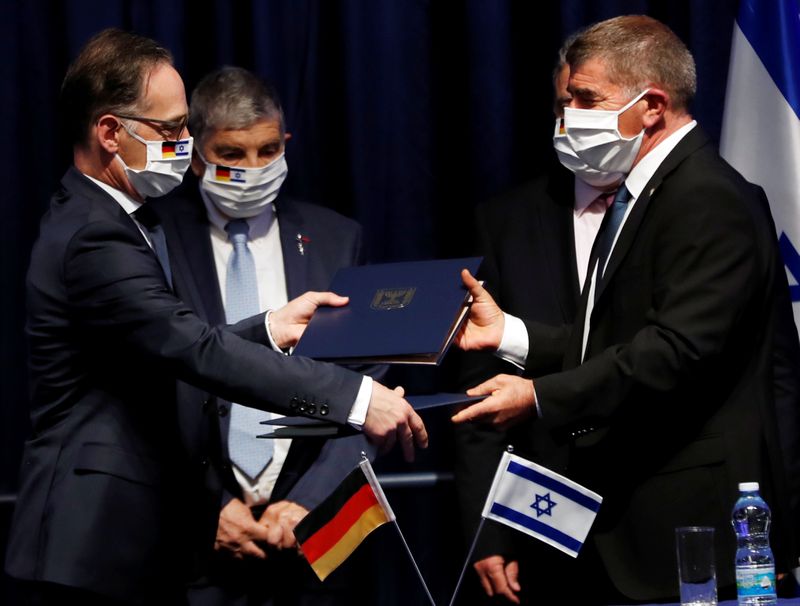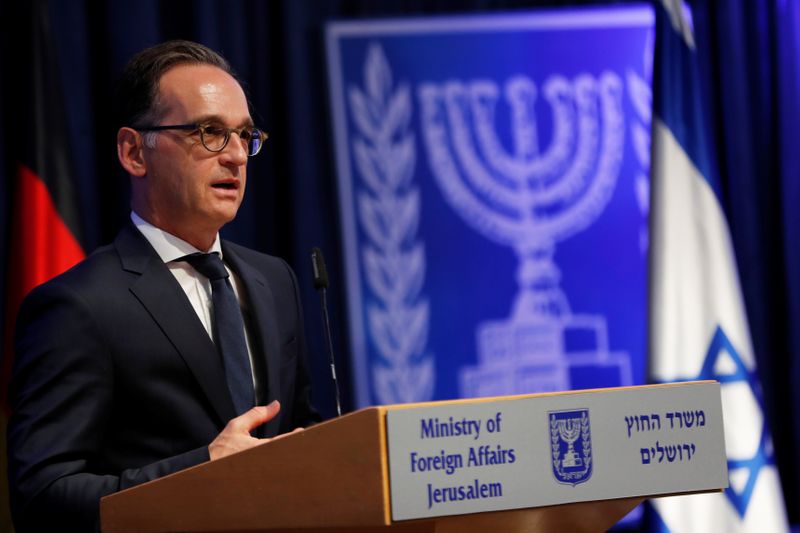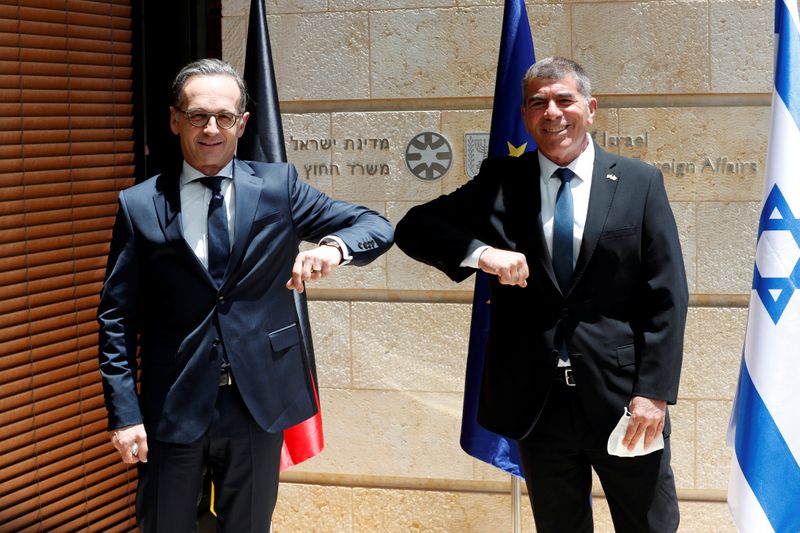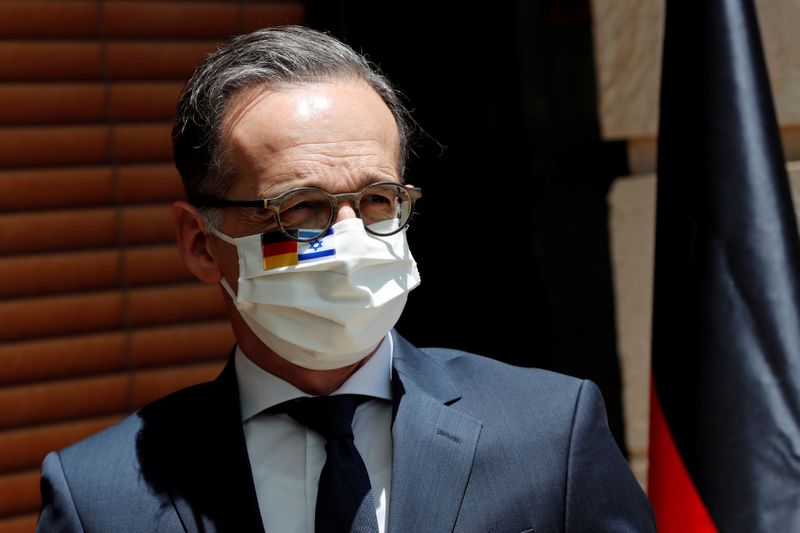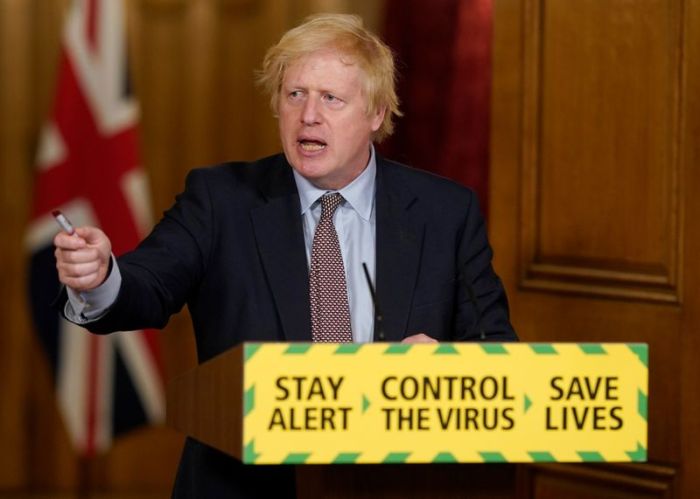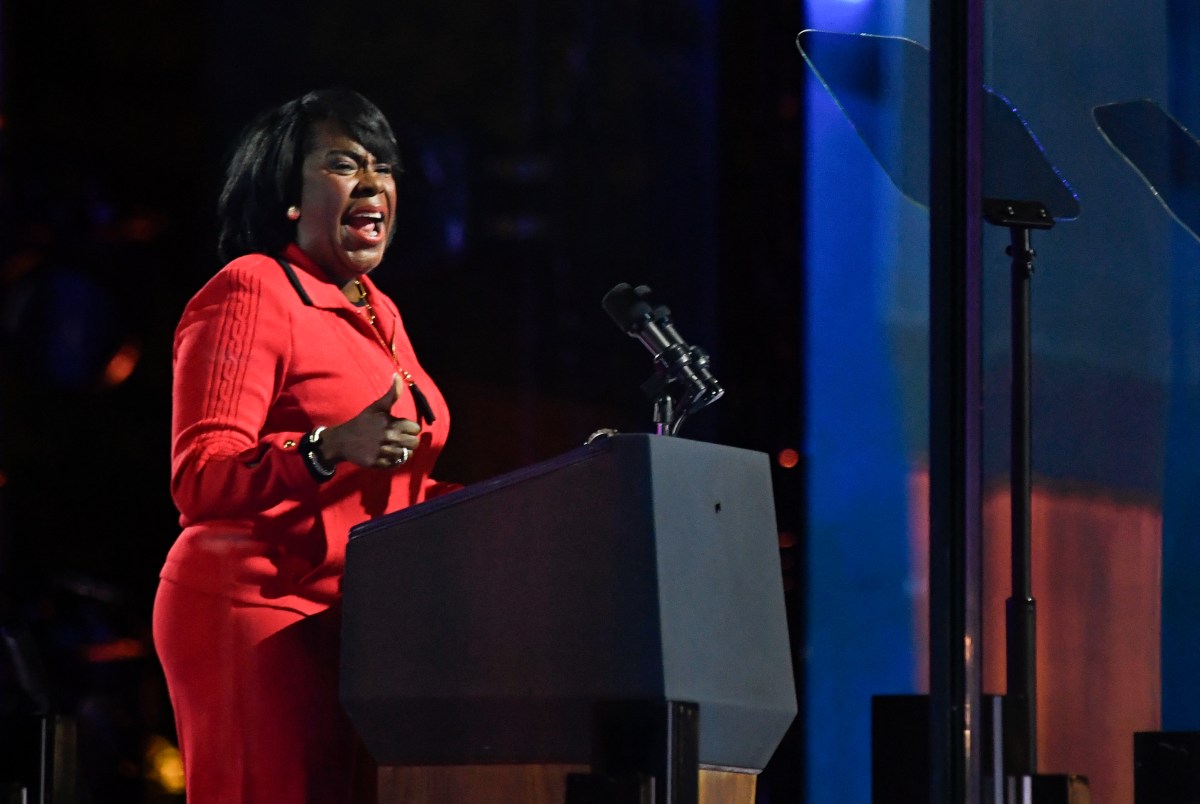JERUSALEM (Reuters) – Germany’s foreign minister on Wednesday expressed serious concern to Israel about its plans to annex parts of the occupied West Bank, but he stopped short of threatening sanctions.
Minister Heiko Maas was speaking on a visit to Israel one month before Berlin assumes the European Union presidency, a role which gives it great influence in guiding EU policy.
Israel’s new unity government next month intends to begin discussing extending sovereignty to its settlements in occupied land that Palestinians claim for an envisaged independent state.
The plan has been criticised by Arab and European powers as likely to finish off long-moribund efforts to make peace between Israel and the Palestinians. Israel says annexation would be in keeping with a unilateral plan announced by U.S. President Donald Trump in January.
“I repeated here today the German position as well as our serious concerns as a special friend of Israel of the possible consequences of such a step,” Maas told reporters alongside his Israeli counterpart Gabi Ashkenazi.
Maas later met Prime Minister Benjamin Netanyahu, who told him that any “realistic plan must recognise the reality of Israeli settlement in the territory and not foster the illusion of uprooting people from their homes”, according to a statement from Netanyahu’s office.
It made no direct mention of annexation. But it said Netanyahu spoke of ensuring Israel’s “vital interests”, such as maintaining “full security control” over the West Bank.
Maas planned to travel from Israel to Amman later for separate talks with Jordanian officials and Palestinian leaders.
INTERNATIONAL LAW
Last September, Germany was one of five European nations to say annexation would constitute a serious breach of international law. EU foreign policy chief Josep Borrell said in February that such a move would not go unchallenged.
Asked on Wednesday about possible EU sanctions against Israel, Maas said: “I did not set any price tags.”
Israeli-Palestinian talks aimed at agreeing on a two-state solution broke down in 2014. Palestinian leaders have boycotted the Trump administration over its perceived bias towards Israel.
Washington’s proposal envisages a Palestinian state in up to 70% of the West Bank, but with overall Israeli security control. Palestinians say that would leave them with an unviable country.
Defence Minister Benny Gantz called for “a broad international dialogue” on the U.S. proposal after his talks with Maas.
Gantz and Ashkenazi belong to the centrist Blue and White party, which joined Netanyahu’s conservative Likud in a coalition in May. Some Blue and White ministers have expressed misgivings about unilateral annexation.
Palestinian Foreign Minister Riyad al-Maliki on Wednesday called on countries to form an international front to isolate what he called “the Israeli colonial system”.
Speaking to a virtual meeting of the Organization of Islamic Cooperation, he urged countries to boycott Israel, ban its products, and impose economic and political sanctions.
Most countries view settlements that Israel built on land captured in the 1967 Middle East war as illegal. Israel disputes this.
(Additional reporting by Joseph Nasr and Jeffrey Heller, Writing by Dan Williams and Jeffrey Heller, Editing by Angus MacSwan)

